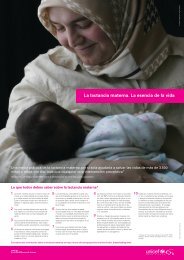SEXUAL ABUSE AND EXPLOITATION OF BOYS IN SOUTH ASIA A ...
SEXUAL ABUSE AND EXPLOITATION OF BOYS IN SOUTH ASIA A ...
SEXUAL ABUSE AND EXPLOITATION OF BOYS IN SOUTH ASIA A ...
Create successful ePaper yourself
Turn your PDF publications into a flip-book with our unique Google optimized e-Paper software.
8.0 COUNTRY PR<strong>OF</strong>ILE: SRI LANKA 377<br />
8.1 Research Findings<br />
8.1.1 Country background<br />
Over the last 25 years, the economy of Sri Lanka has been damaged by civil conflict and the<br />
erosion of its traditional agricultural base. Scarcity of land and irrigated water, increasing<br />
production costs and loss of markets have reduced the growth of agriculture, the economic<br />
foundation for three-quarters of the country’s population. Yet rural-to-urban migration is<br />
relatively slow, unlike other South Asian countries. Coupled with increasing rural poverty,<br />
the country’s strategies for economic development in the last two decades – particularly the<br />
migration of women for overseas employment and the development of tourism – have<br />
resulted in a significant loss in protection of children from sexual abuse and exploitation.<br />
Sri Lanka has had a strong social safety net for more than 50 years and has succeeded in<br />
providing adequate services to its people. It has sufficient health care services, informative<br />
media coverage and one of the best educational systems in South Asia. With a long tradition<br />
of government priority for education, children have easy, free access to school, and enrolment<br />
is high. In 2000, children under 19 comprised about 46 per cent of the population of 19.3<br />
million people. 378<br />
The civil conflict with the Liberation Tigers of Tamil Eelam (LTTE) has had a powerful<br />
impact on the country’s social foundations, affecting an estimated 1.7 million people over the<br />
last 20 years. 379 As of 2002, an estimated 800,000 people had been displaced, many into<br />
refugee camps and temporary shelters. 380 In the war-affected zones in the north and east, basic<br />
services such as health, education, transportation, electricity, water and sanitation have<br />
deteriorated. The war has eroded children’s safety nets, and sexual abuse and exploitation<br />
have increased. 381 The tsunami of December 2004 added to the burden on the lives of the<br />
poor. A 2006 study found increased vulnerability to physical and sexual abuse among<br />
children housed in ‘tsunami camps’, but no clear links could be established between the<br />
tsunami and child trafficking. 382<br />
In addition to rural poverty and war, protection of Sri Lankan children from sexual abuse and<br />
exploitation has been further eroded by national economic strategies. Sri Lanka has the<br />
highest proportion in South Asia of women migrating overseas for employment. As of 1996,<br />
377 As mentioned in the section on Scope and Limitations, most of the research for this report was gathered in<br />
2008. It therefore does not take into consideration the changes that have occurred since that time, and that have<br />
impacted all aspects of children’s rights, including the right to be protected from sexual abuse and exploitation.<br />
378 International Labour Organization (Amarasinghe, S.), 2002, ‘Sri Lanka: The commercial sexual exploitation<br />
of children: A rapid assessment’.<br />
379 Consortium of Humanitarian Agencies, 2006, ‘Sri Lanka country profile’. Colombo: CHA.<br />
380 United Nations High Commissioner for Refugees, 2007, <br />
381 International Labour Organization (Coomaraswamy, R. and Satkunanathan, A.), 2006, ‘Anti-child trafficking<br />
legislation in Asia: A six-country review’.<br />
382 Terre des hommes (Lausanne), 2006, ‘Sri Lanka research report: Child trafficking and links with child sex<br />
tourism and the commercial sexual exploitation of children’ (draft).<br />
125










